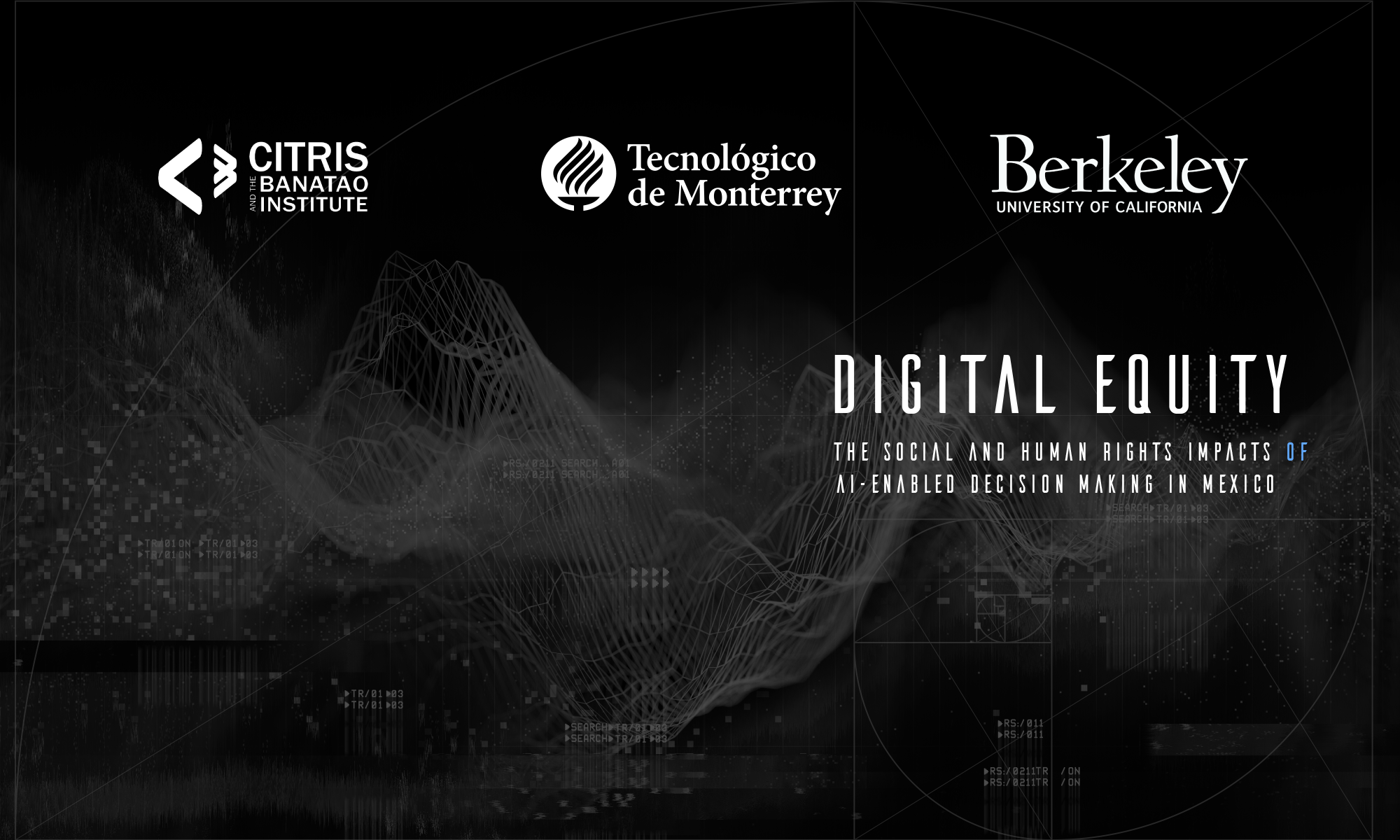Digital Equity: The Social and Human Rights Impacts of AI in Mexico
Thurs., August 29, 2019 9:00 – 6:00 pm
Tecnológico de Monterrey, Campus Estado de México
KM. 3.5 Carr. Lago de Guadalupe
Col. Margarita Maza de Juárez
Atizapán de Zaragoza, Estado de México
C.P. 52926
#DigitalEquity19 | Workshop Information: wip.mx/de
Artificial intelligence (AI) holds great potential to benefit society, enabling greater efficiency, equity, and reach. But, utilization of biased training data and ill-considered algorithms can undermine social gains by perpetuating and reinforcing social injustices. While AI-enabled systems have been shown to have these negative effects, it is important to also consider how AI and intelligent tools can be applied to power some of the most innovative solutions to society’s most pressing challenges — from democratic engagement to humanitarian aid and digital inclusion.
Equidad Digital brings together leading practitioners and scholars to discuss the social and human rights impacts of AI-enabled systems in the Mexico-U.S. context and to support the development of interdisciplinary research and capacity building.
August 29, 2019 (Thursday)
9:00 Registration
10:15 Welcome Remarks
-
-
-
- Dora Elvira Garcia Gonzalez, Professor and Dean of Research, School of Humanities and Education, Tecnologico de Monterrey
- Camille Crittenden, Executive Director, CITRIS and the Banatao Institute
- Brandie Nonnecke, Director, CITRIS Policy Lab
- Julio Ernesto Rubio Barrios, Dean, School of Humanities and Education (Mexico City)
-
-
10:30 Keynote 1: Protecting Human Rights in the Age of Artificial Intelligence:
the Special Challenges of Mexico
-
-
-
- Diego Garcia, Professor of Law, and author of the Right of Privacy,
Universidad Iberoamericana
- Diego Garcia, Professor of Law, and author of the Right of Privacy,
-
-
This presentation explores the challenges of protecting human rights in the age of Artificial Intelligence. In this era, large organizations collect enormous quantities of data and apply mathematical tools for different purposes, such as improving efficiency and effectiveness in the provision of goods and services. At the same time, data can be used for the purpose of identifying a targeting individuals, diminishing the sphere of individual privacy. While Mexico has enacted statutes protecting personal data, there are several challenges that leave individuals subject to potential abuses from the state, private corporations and other individuals.
11:30 Break
11:45 Panel 1: AI, Ethics, and Human Rights
Artificial intelligence (AI) promises to profoundly impact society, introducing both substantial benefit by enabling greater efficiency and effectiveness and substantial harm by perpetuating and amplifying bias and discrimination. This panel explores the ethical implications of AI applications, detailing not only the risks but opportunities to harness AI-enabled technologies to support human rights.
Moderator: Fernando Gutierrez, Professor and Director of the Division of Humanities and Education, Tecnologico de Monterrey
-
-
-
- Raul Monroy, Professor, Computer Science, Tecnologico de Monterrey
- Graciela Castillo, Chair, Humanities Studies, Tecnologico de Monterrey
- Alejandro Ocampo, Chair, Media and Digital Culture, Tecnologico de Monterrey
- Julio Ernesto Rubio Barrios, Dean, School of Humanities and Education (Mexico City), Tecnologico de Monterrey
-
-
12:45 Lunch
2:30 Keynote 2: State-Sponsored Trolling: Exploring the Influence of
Weaponized Disinformation
-
-
-
- Nick Monaco, Director, Digital Intelligence Lab, Institute for the Future
-
-
In recent years, governments around the world have begun deploying targeted harassment campaigns intended to intimidate and silence individuals critical of them. This phenomenon, state-sponsored trolling, represents a new form of human rights abuse in the modern era, and one that touches on the issues of disinformation, surveillance, cognitive security and other digital rights issues. In this presentation, Nick Monaco presents mixed methods research produced from a collaborative effort that included IPI and Global Voices to examine the mechanics of these campaigns and their chilling effect on society.
3:30 Break
3:45 Panel 2: Emerging Approaches to the Study of Human Rights & AI
Understanding and addressing the human rights impacts of AI is complex. AI-enabled technologies bring both positive and negative impacts, many of which are not equally distributed throughout society. This panel explores new methodological approaches and tools to enable greater understanding of the complex effects of AI on society.
Moderator: Oscar Mario Miranda, Professor-Researcher, Tecnologico de Monterrey
-
-
-
- Maria del Carmen Jimenez, IT Consultant and Professor, Tecnologico de Monterrey
- Hannah Ellis, Technology Strategy Associate, Human Rights Foundation
- Alejandro Martin del Campo, Professor, Tecnologico de Monterrey
- Jorge Rodríguez, Head of the program in Cibersecurity, Tecnologico de Monterrey
- Simarjeev Singh, Research Assistant, CITRIS Policy Lab, UC Berkeley
-
-
4:45 Concluding Remarks
-
-
-
- Fernando Gutierrez, Professor and Director of the Division of Humanities and Education, Tecnologico de Monterrey
-
-
5:00 Reception
This material is based upon work supported by a grant from the University of California Institute for Mexico and the United States (UC MEXUS) and the Consejo Nacional de Ciencia y Tecnologia de Mexico (CONACYT).

